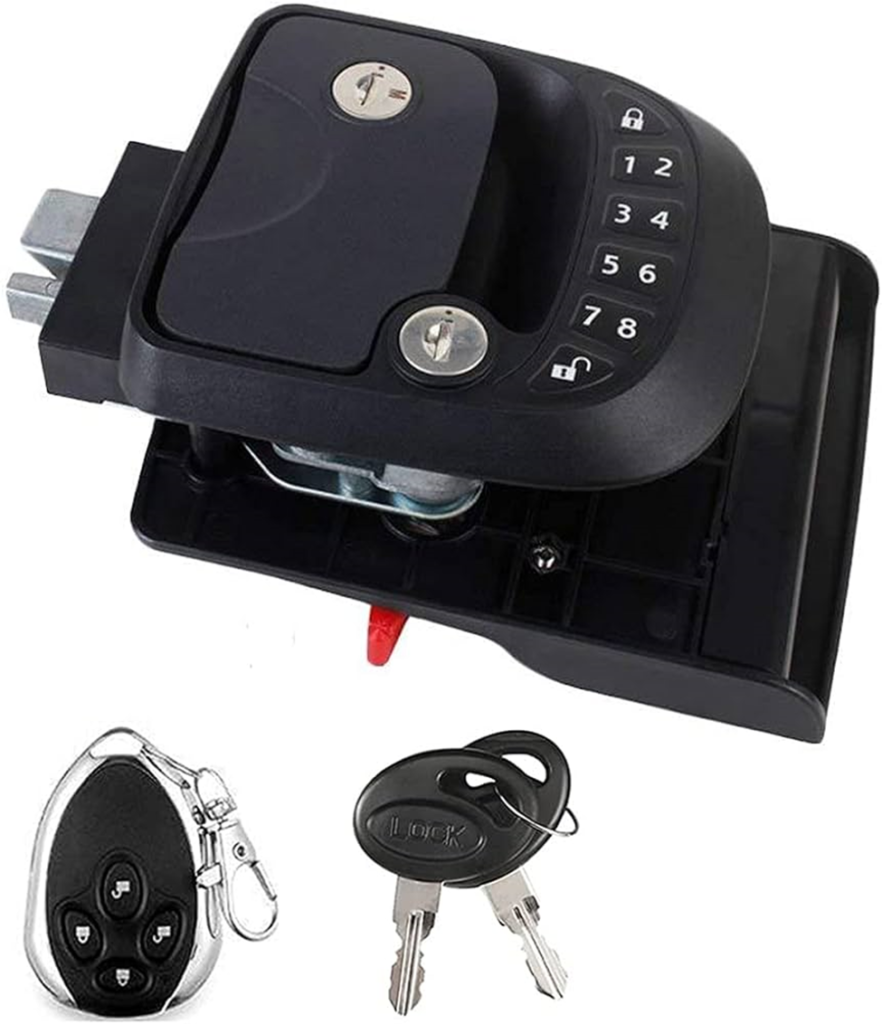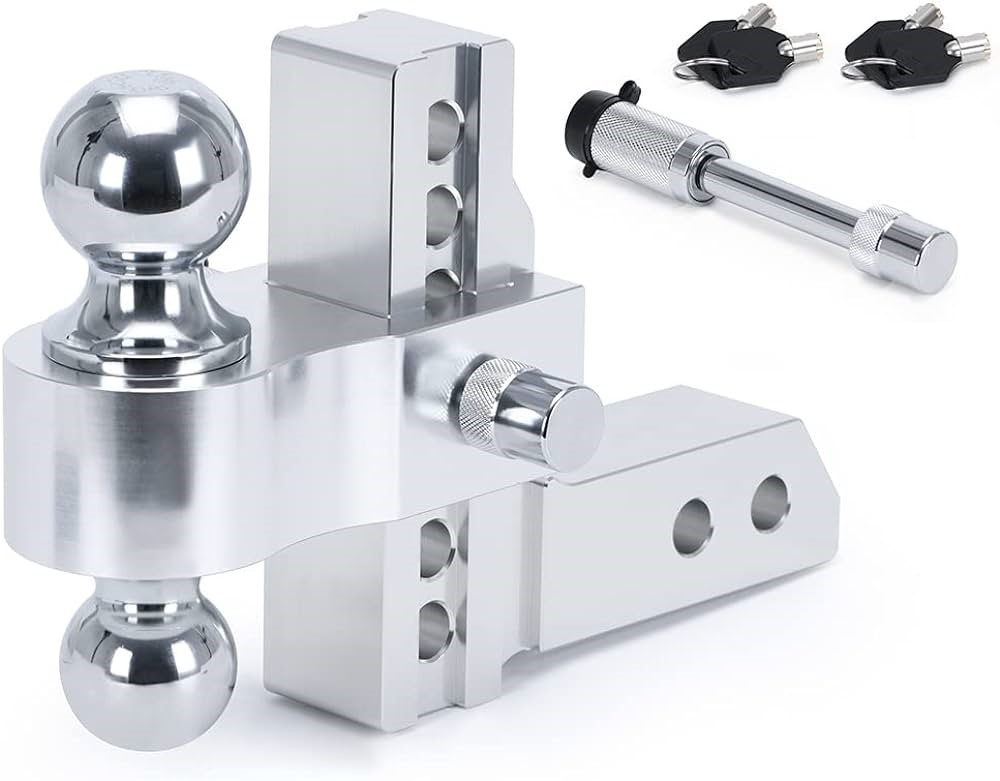So you’ve decided to tow a trailer with your vehicle. Great idea! A trailer can open up a whole new world of recreational and work opportunities. But before you head to the store and buy the first hitch you see, it’s important to make sure you get the right one for your needs. Not all hitches are created equal, and the wrong choice can be dangerous and damage your vehicle. This guide will walk you through the different types of hitches, how much weight each can handle, and what you need to consider to select a hitch that’s perfect for your vehicle and whatever it is you want to tow. By the end of this, you’ll be hitching up and hitting the road with confidence.
Types of Trailer Hitches: Receiver Hitches, 5th Wheel Hitches, and Gooseneck Hitches
When it comes to hauling a trailer, the most important decision you’ll make is which type of hitch to use. There are three main options:
Receiver hitches are the most common. They attach to your vehicle’s frame and feature a square receiver tube you slide the trailer tongue into. Receiver hitches can handle lighter loads, perfect for hauling a small utility trailer, camper or boat.
Fifth wheel hitches
mount in the bed of a pickup truck and are best for large trailers like RVs. A fifth-wheel hitch connects to a pin box on the front of a fifth-wheel trailer, allowing for tighter turns. However, your truck bed space is reduced and you’ll need a heavy-duty tow vehicle.
Gooseneck hitches are similar but attach to holes in the truck bed. Goosenecks can handle the heaviest trailers. Like fifth wheels, they also take up bed space and require a sturdy tow vehicle.
No matter which type you choose, make sure your vehicle’s tow rating exceeds the total weight of the trailer. And check that the hitch is properly installed and rated to handle your specific trailer. With the right equipment in place, you’ll be ready to tow safely and confidently.
What to Consider When Choosing a Trailer Hitch: Towing Capacity, Vehicle Compatibility, Hitch Class
When choosing a trailer hitch for your vehicle, there are a few important things to consider:
Towing Capacity
Make sure the hitch you select is rated to tow the weight of your loaded trailer. Too light a hitch can’t handle the load and is dangerous, while too heavy a hitch is unnecessary and reduces your vehicle’s payload capacity. Check your vehicle’s towing specification to determine the maximum trailer weight it can handle.
Vehicle Compatibility
Hitches are vehicle-specific, so you need one that’s designed to fit your exact year, make and model. The hitch attaches to reinforced areas of the vehicle frame, so a custom fit is required. An incompatible hitch won’t securely attach and can cause damage.
Hitch Class
Hitches come in 5 main classes based on how much weight they can tow. For light loads like a small utility trailer, a Class I or II will work. For heavier campers and boats, you’ll need a sturdier Class III, IV or V. The higher the class, the more robust and expensive the hitch.
By considering your needs, towing capacity and vehicle specs, you can choose a trailer hitch that’s perfect for your situation. With the right hitch securely installed, you’ll be ready to tow safely and responsibly. Happy travels!

Top Brands for Quality Trailer Hitches: Draw-Tite, CURT, B&W, and Reese Hitches
When it comes to towing a trailer, the hitch is one of the most important components. The hitch attaches your trailer to your vehicle, so you want one that’s durable, secure, and properly rated for your trailer’s weight. Some of the top trailer hitch brands are:
- Draw-Tite: Draw-Tite is one of the most popular hitch brands and makes hitches for nearly every vehicle and trailer combination. Their hitches are very affordable yet high-quality, with options for weight distributing hitches and 5th wheel hitches in addition to standard ball mounts.
- CURT: CURT is another reputable, mid-range hitch brand that produces a wide range of ball mounts, weight distribution hitches, 5th wheel hitches, and gooseneck hitches. CURT hitches are very durable and competitively priced. They’re a great, dependable choice for most towing needs.
- B&W: B&W is a premium hitch brand that specializes in 5th wheel and gooseneck hitches. Their hitches are very high-quality and innovative, with options like their Turnoverball hitch that doesn’t require uncoupling the hitch from the trailer. B&W hitches do come at a higher price point but are worth it for heavy-duty towing.
- Reese: Reese is one of the most well-known hitch brands and has been producing hitches since 1952. They make a wide range of ball mounts, weight distribution systems, 5th wheels, and goosenecks for nearly every vehicle. Reese hitches are very high-quality and trusted, though they do tend to cost a bit more than comparable products from Draw-Tite or CURT.
In the end, you can’t go wrong with any of these top hitch brands. Choose a hitch that’s properly rated for your vehicle’s tow rating and your trailer’s weight to ensure safe, secure towing for the long haul.
Conclusion
So now you’ve got all the info you need to select the perfect trailer hitch for your vehicle and needs. The key is to determine how much weight you need to tow, choose a hitch with an appropriate weight rating, and make sure it’s properly installed. Do that, and you’ll be ready to tow safely and securely. Hitting the open road, exploring the countryside, and bringing all your gear with you – that’s what owning a trailer and the freedom of the road is all about. So get out there, find your perfect trailer, hitch it up, and start making memories. The adventure awaits! What are you waiting for? The road is calling your name.
